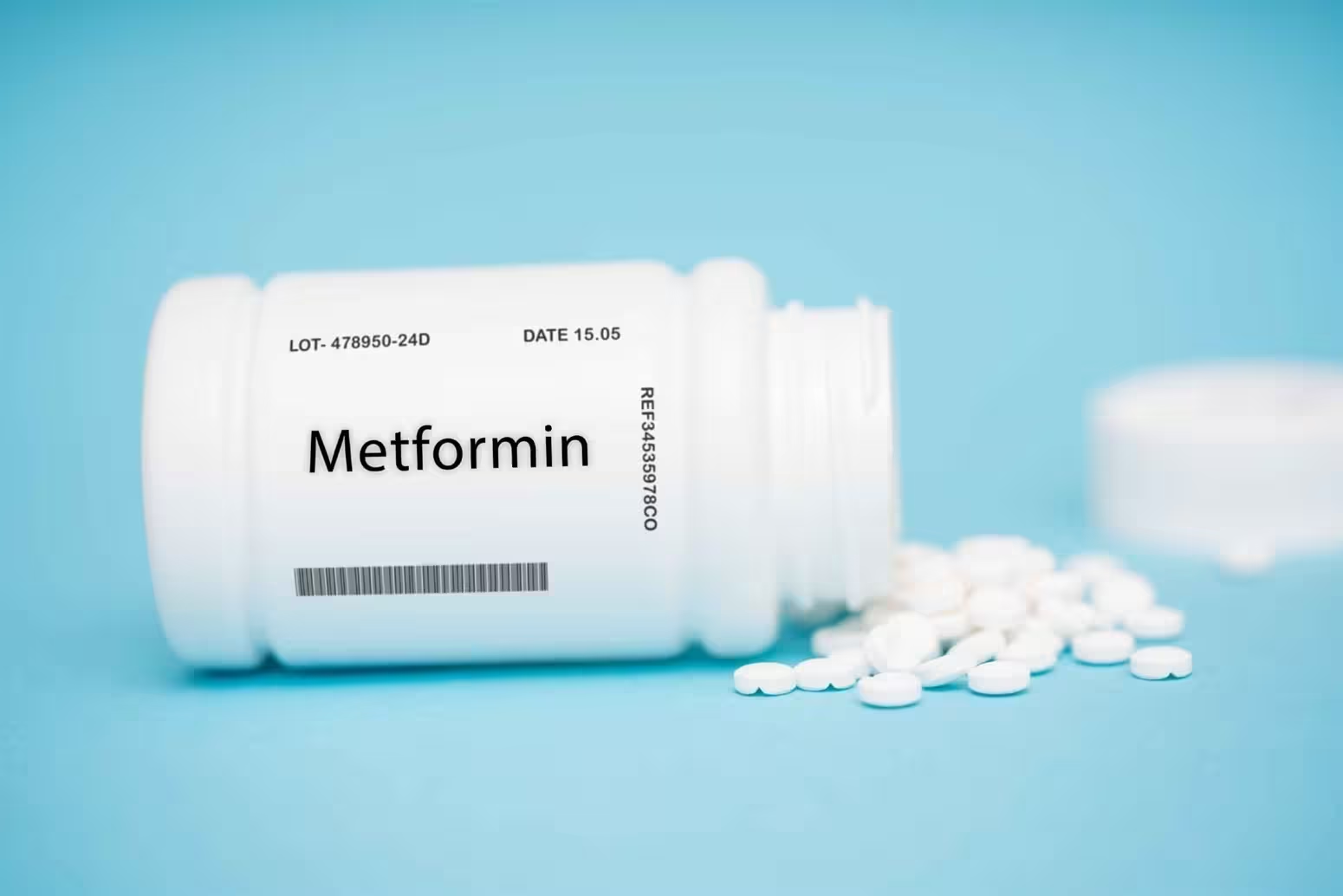6 Minutes
A comprehensive retrospective analysis of primary care records in the United Kingdom indicates that the widely used, low-cost diabetes medication metformin is associated with a substantially lower risk of developing Long COVID among adults with overweight or obesity. Using anonymized data covering more than 624,000 patients and roughly 1.8 million health-record observations, researchers report a 64% relative reduction in post‑COVID condition (PCC) risk for patients who began metformin shortly after a SARS‑CoV‑2 infection (intention‑to‑treat hazard ratio 0.36; 95% CI 0.32–0.41). The observed one‑year absolute risk difference was about −12.58%, translating to an estimated number needed to treat (NNT) of approximately eight to prevent one case of Long COVID in this population.
Background: Long COVID and why affordable interventions matter
Post‑COVID‑19 condition (commonly called Long COVID) describes a heterogeneous set of symptoms that persist for months after acute SARS‑CoV‑2 infection. The World Health Organization defines PCC as symptoms lasting at least two months that typically begin within three months of infection. Globally, health systems continue to see substantial morbidity from prolonged fatigue, cognitive dysfunction ("brain fog"), dyspnea, sleep disturbance and a wide array of multisystem complaints—together exceeding 200 reported symptom types.
Identifying low‑cost, scalable interventions is a priority for public health and clinical policy because the underlying biology of Long COVID remains incompletely understood and therapeutic options are limited. Previous randomized work (for example, the COVID‑OUT trial) suggested metformin could reduce PCC incidence as a secondary outcome in people with overweight or obesity. The present study extends those signals into a real‑world setting using electronic primary care records and advanced analytic methods.
Study design and analytical approach
Data source and cohort selection
The analysis used the UK Clinical Practice Research Datalink (CPRD) Aurum, a primary care database that covers nearly one quarter of England's population. Researchers selected adults (BMI ≥ 25 kg/m²) with a clinically recorded diagnosis of COVID‑19 between March 2020 and July 2023. Individuals who had documented use of metformin or other glucose‑lowering drugs prior to infection, or who had contraindications to metformin, were excluded to reduce confounding from preexisting drug exposure.

Emulating trials in observational data
To mimic randomized controlled trials, the investigators applied a sequential target trial emulation framework with three staggered entry points (diagnosis, 30 days post‑diagnosis, and 60 days post‑diagnosis). They compared the one‑year risk (90–365 days after infection) of clinically validated PCC diagnoses or newly recorded WHO‑listed symptoms in patients who initiated metformin within the defined windows to those who did not start the drug. Both intention‑to‑treat and per‑protocol analyses were performed, and subgroup analyses stratified outcomes by age, sex, BMI category and diabetes status.
Findings and robustness checks
Among 624,308 eligible adults, 2,976 initiated metformin following infection. The primary intention‑to‑treat analysis found a hazard ratio of 0.36 (95% CI 0.32–0.41), indicating a 64% relative risk reduction for Long COVID among metformin initiators. Per‑protocol estimates were consistent (HR 0.36; 95% CI 0.33–0.41). The protective association persisted across multiple subgroups, including during periods dominated by Delta and Omicron variants. A negative control analysis examining incident cancer risk showed no protective effect (HR 1.13), supporting specificity of the association.
These results correspond to an absolute risk reduction of approximately 12.6 percentage points over one year and an estimated NNT of roughly eight overweight or obese adults treated with metformin to prevent one Long COVID case. The study authors emphasize that, as an observational design, the report shows strong association but cannot establish causation.
Biological rationale and limitations
Metformin is a first‑line therapy for type 2 diabetes known primarily for lowering blood glucose. Beyond glycemic control, metformin exerts anti‑inflammatory effects and activates AMP‑activated protein kinase (AMPK), a cellular energy sensor implicated in metabolic regulation and antiviral responses. Laboratory studies suggest AMPK activation can alter viral replication dynamics and downstream inflammatory signaling, offering plausible mechanisms for a protective effect against PCC. Nevertheless, precise pathways remain under investigation.
Key limitations include potential residual confounding inherent to observational research, possible misclassification of Long COVID in routine records, and limited generalizability to normal‑weight individuals—the study cohort was restricted to BMI ≥ 25 kg/m². The authors call for randomized controlled trials to test causality and to define optimal timing, dose, and patient selection for any preventive metformin strategy.
Expert Insight
"These findings are notable because they come from broad, real‑world primary care data rather than a single trial population," said Dr. Emilia Hartwell, a clinical epidemiologist and infectious disease researcher (fictional). "Metformin's pleiotropic effects—metabolic, anti‑inflammatory and possible antiviral activity—make it a logical candidate for repurposing studies. However, clinicians should not change practice based on observational data alone; large randomized trials are the appropriate next step to confirm benefit and safety in this specific indication."
Dr. Hartwell added that public health impact would be significant if randomized trials corroborate these results because metformin is inexpensive, widely available and generally well tolerated.
Implications and next steps
If subsequent randomized controlled trials confirm these associations, metformin could become a pragmatic preventive option for reducing PCC burden among people with overweight or obesity. Policymakers and clinicians would then need guidance on eligibility criteria, treatment timing relative to infection, and monitoring for adverse effects. Parallel laboratory studies should continue to probe mechanisms—particularly AMPK‑mediated pathways and immunometabolic modulation—to understand how metformin might alter the trajectory from acute infection to chronic post‑viral syndromes.
Conclusion
This large UK retrospective cohort study adds to growing evidence that metformin initiation shortly after SARS‑CoV‑2 infection is associated with a markedly lower risk of Long COVID in adults with overweight or obesity. While the association is robust across multiple analyses, observational data cannot alone prove causation. Randomized controlled trials and mechanistic research are essential next steps to determine whether metformin can be repurposed as a cost‑effective preventive strategy against post‑COVID‑19 conditions.
Source: news-medical


Leave a Comment